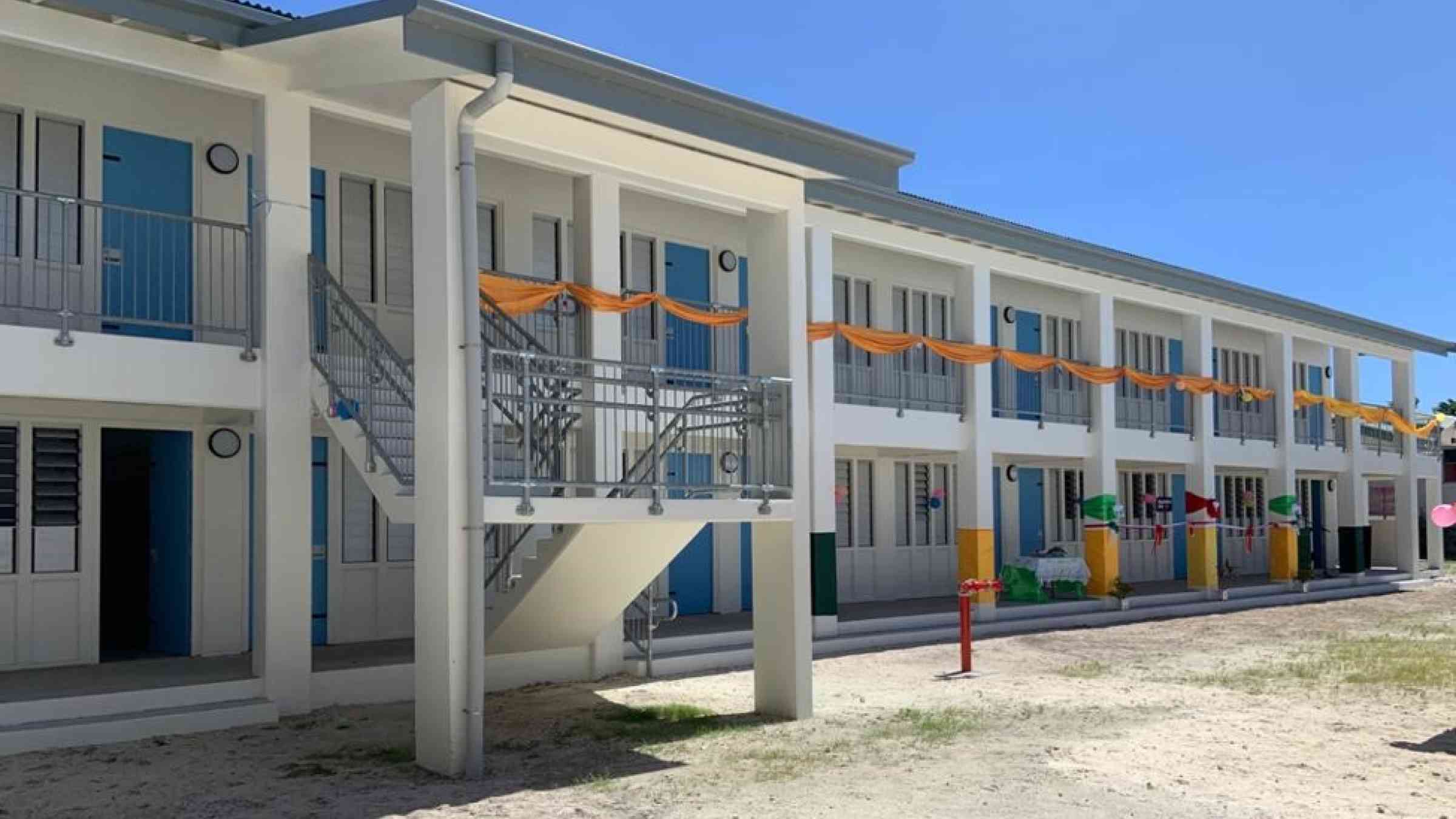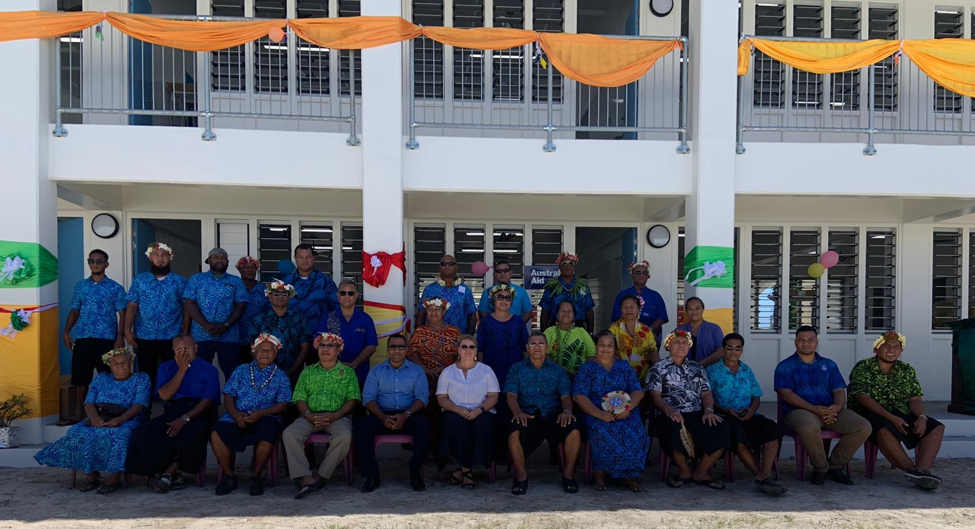Fale-pili: Australia and Tuvalu build disaster-resilient classrooms

Young students from the island nation of Tuvalu are now able to go to school without the constant fear that the next tropical cyclone would destroy their classrooms – all thanks to a partnership between their government and Australia.
Through the $4.1-million Funafuti Classroom Building Project primarily funded by the Australian government, a two-storey, 12-classroom block has been added to Nauti Primary School, the largest educational institution in Tuvalu’s capital where 45% of the country’s total primary school students are enrolled.
The new school building, conceptualized in 2016 and completed in August 2020, was constructed to be more climate change and disaster-resilient, following building standards in both Australia and New Zealand.
These features are especially important for Tuvalu, where the highest point is less than five meters above sea level. Tuvalu is one of the most vulnerable countries in the Pacific region, its population is under threat from coastal erosion, sea level rise, wind-driven waves, and king tides. The devastation caused by Tropical Cyclone Pam in 2015 and Tropical Cyclone Tino in 2020 destroyed homes and crops and caused severe flooding in the island state.
Sumeo Silu, director for Department of Disaster Management, said Tuvalu sought developmental assistance from Australia’s Department of Foreign Affairs and Trade (DFAT) to help address two primary concerns: lack of classrooms for Nauti’s 800 student population and the need for a proper evacuation center for families living in the area.
Before the new classroom was built, Nauti students have had to deal with water leakage from the roof and poor ventilation, making it difficult for them to focus on studying.
The new classroom building block at Nauti Primary School has a reinforced concrete frame and blockwork infill, heavy exposed timber trussed roof framing, and colorbond steel roofing that can withstand earthquakes and wind speeds of a Category 5 cyclone.
These materials also make the facilities more resilient against soil erosion, a perennial problem in the site as Nauti Primary School is located near a lagoon.
To help the school community deal with long periods of drought, rainwater harvesting tanks were installed, giving the school community access to clean, potable water. Separate sanitation facilities for females and males were also constructed in the school.
All of these features offer a much safer learning environment at Nauti Primary School. When calamity strikes, families who would seek shelter at the school would also be better protected against the elements of nature.
The classroom building also features a Resource Center that caters to disabled students, making the Nauti Primary School a more inclusive learning institution.
“So for the first time in Tuvalu, in this new classroom, we have a Resource Center for disabled students. Now they are able to bring in these disabled students in these new classrooms. They have their own classrooms so they can continue their studies. So I think they’re very positive, this project, there are very good impacts for people in Tuvalu,” said Silu.
‘Moral responsibility to help neighbors’
Completion of the project took four years, however, as most of the materials had to be shipped in from overseas as Tuvalu did not have resources on their islands.
The coronavirus pandemic also delayed the completion of the Nauti Primary School classroom building, as strict border controls and travel restrictions hampered the operations.
But despite these setbacks, Tuvalu and Australia’s Funafuti Classroom Building Project at Nauti Primary School is considered a success.

For Tuvalu’s Silu, this partnership highlights how international partnerships are crucial in battling the crippling effects of climate change. He cited the Tuvaluan concept of fale-pili or the moral responsibility to protect one’s neighbors.
“In Tuvalu, we strongly promote the ethical and moral principles reflected in our Tuvalu culture. These values will influence other nations,” Silu siad. “And I hope [concepts in] Tuvalu culture such as olaga fakafenua, which is communal living system, kaitasi or shared responsibilities and fale-pili concept – we use this [for] being a good neighbor– will motivate others [and] understand the shared responsibilities to address international issues like climate change, sea rising, and global warming.”
Aside from Tuvalu, Australia is helping other Pacific Islands. At the 2019 Pacific Islands Forum, Australia pledged to spend $500 million over five years (2020-2025) to strengthen climate change and disaster resilience in the Pacific. This builds on Australia’s success in exceeding a 2016 commitment to spend $300 million over four years, from 2016 to 2020.